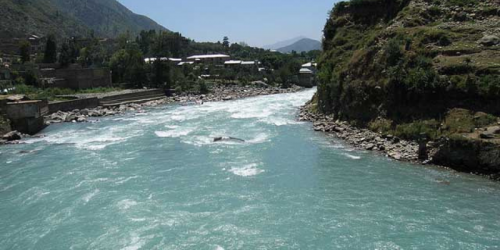ISLAMABAD: The Khyber-Pakhtunkhwa government is seeking World Bank assistance for the development of 88MW run-of-river hydropower project on the Gabral tributary of the Swat river to generate about 339 gigawatt hours of electricity annually.
The World Bank is currently evaluating the project which will be located near the Kalam town in Swat district. The proposed project involves construction of 21-meter high riverbed and 100 meter wide weir with spillways, under sluices, fish ladder, outlet structures and sand trap, according to the project document.
The project will be run-of-river, with a limited reservoir area of fifty acres. The most direct and negative impacts of the project will be on aquatic ecology caused by the construction of a weir and diversion of river flows and land acquisition.
The overall positive impact of the project generating renewable electricity with minimal carbon emission, will be experienced countrywide through the provision of enough energy to power the equivalent of about 116,000 homes per year.ARTICLE CONTINUES AFTER AD
The potential cumulative impact of all existing and planned hydropower projects in the Swat river basin, in the context of the Gabral Kalam hydropower project has been studied and the hydropower development in the basin for the next twenty years include 24 projects with a potential of 2,072MW.
All projects are run-off river except Mohmand (Munda) dam, the most downstream project on the Swat River, which involves storage of 1,600 million cubic meters for power generation and irrigation.
A 4.7km long underground tunnel from the weir site to the powerhouse will be constructed with two units of 37.5MW each and one unit of 13MW, and a switchyard. Under the project, 2.7km long 220kv transmission line will also be laid.
According to the project designed by the Pakhtunkhwa Energy Development Organization, the project influence area comprises of about 11km long valley of the Gabral River and its mountain slopes, from Kanai village to Kalam town, 10km downstream of the weir site, where it joins the Ushu River to form the Swat river. The influence area covers all those areas that will likely to be directly or indirectly affected by the project construction and operational activities.
The Gabral river and its tributaries are characterised by relatively steep gradients and substrate sizes, fast-flowing, and turbulent waters with high flows and more sediments during summer and low flows and sediments during winter.
Two fish species have been recorded from the project area, ‘snow carp’, an indigenous fish species of the Himalayan region, and exotic ‘brown trout’, which was introduced in the 1990s. None of these species are listed in IUCN Red List. Snow carps are short-distance migrants and mainly migrate within the tributaries.





